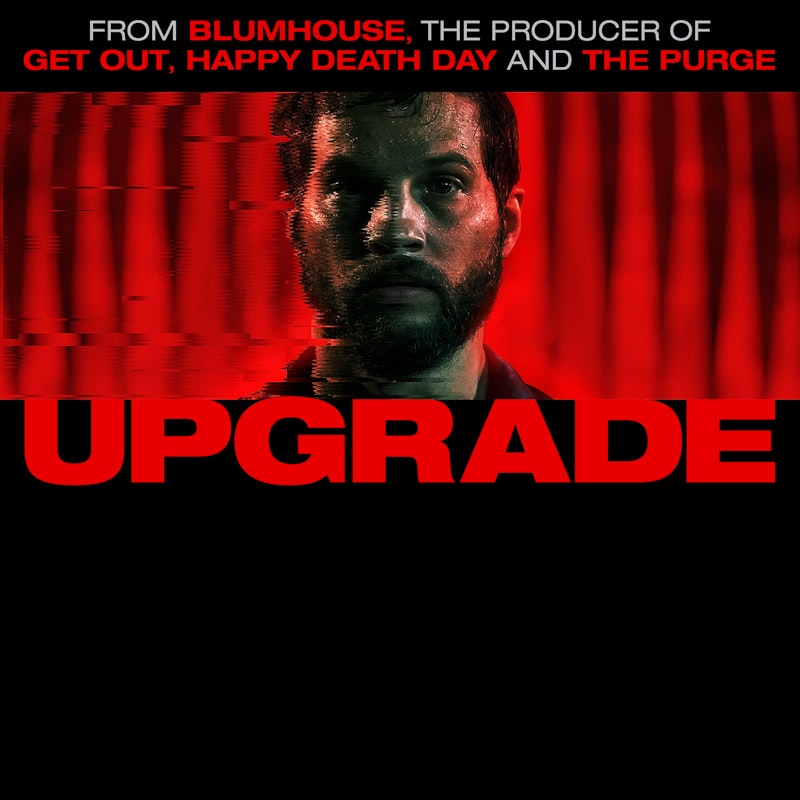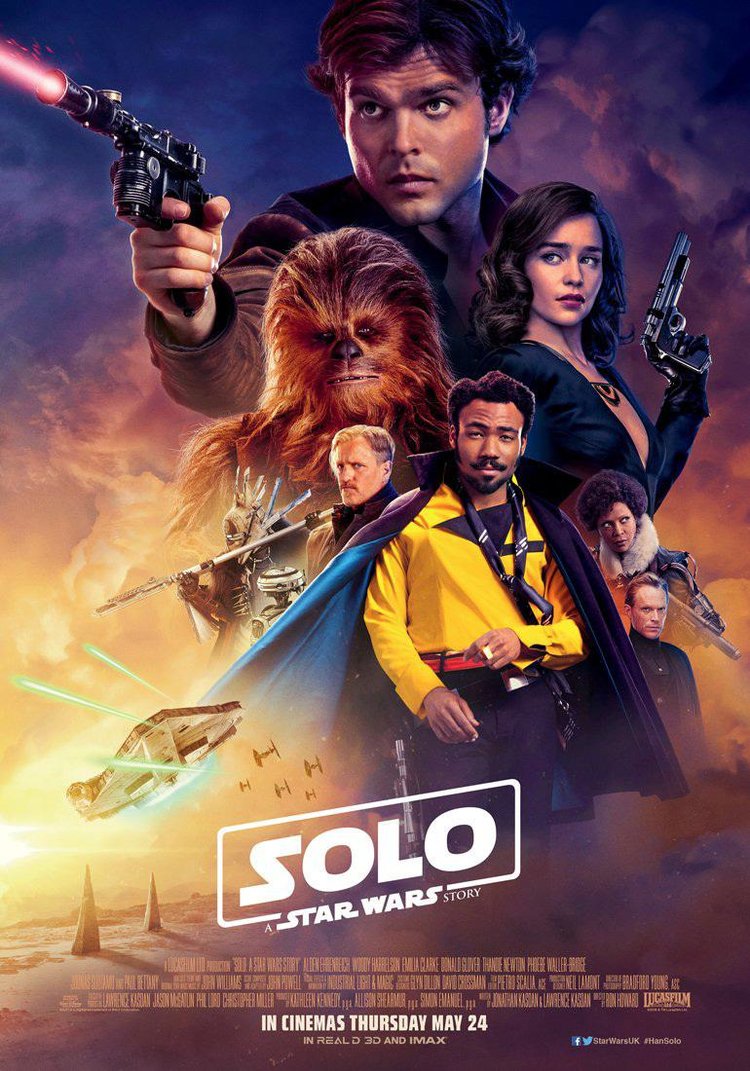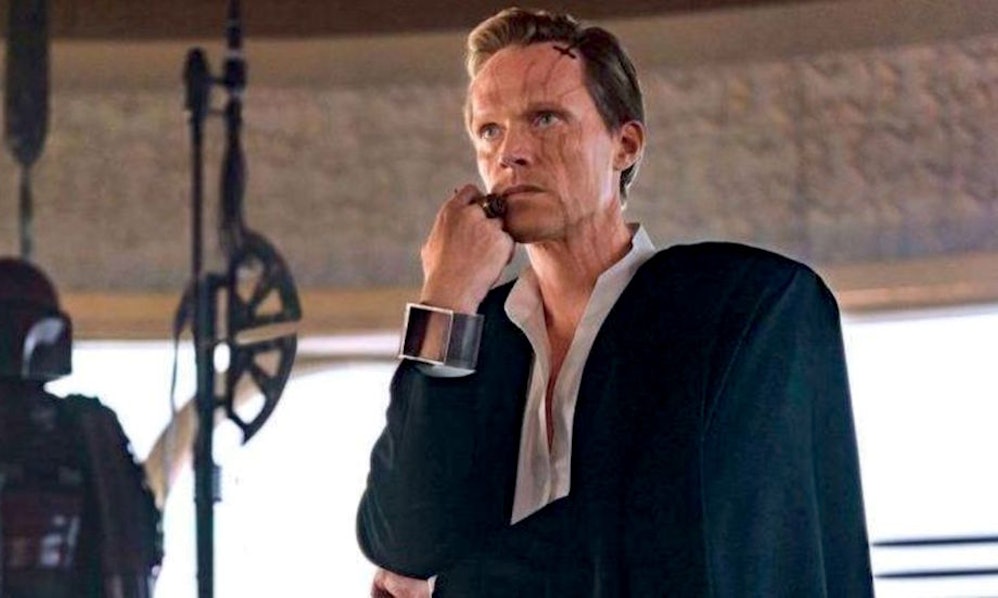Spoiler-Free Section. Read Away!!
Director: Leigh Wannell
Really glad I got a chance to see this one in the theater before it quietly vanished into the world of on-demand and at-home rentals. This was a fun, ripping sci-fi action yarn that actually had one or two nice little tricks up its sleeve.
Written and directed by Australian director Leigh Wannell, best known for horror films such as Saw and Insidious, Upgrade is a fairly striking departure. Taking place in a not-too-distant future where technology has become a part of underground bio-enhancements and weaponization, we follow Grey Trace, a self-professed "low tech" man who prefers rebuilding his 20th-century muscle cars with his bare hands, rather than rely on the conveniences of the hyper-smart technology found all around him. When a serious of unfortunate events finds Grey in possession of a cutting-edge tech implant called STEM, his entire existence starts being flung back and forth between his own mission of revenge and a larger, more mysterious conspiracy at work. As the dangers around Grey increase exponentially, the STEM implant continues to reveal shocking abilities that both thrill and terrify its owner, Grey.
My viewing experience of this movie was of the variety which are my favorite - knowing very little about a film, thus having almost no expectations, and being wonderfully entertained. No, it's not a mind-blowing, heady sci-fi classic on the Blade Runner scale, or even more modern greats like Ex Machina. Still, it taps into our culture's concerns about artificial intelligence and whips it into a movie that is plenty of fun for much of its length. And when the fun takes a dark "cautionary tale" turn, it gets even better.
The aesthetic of the movie goes for something akin to a slightly grittier, more cosmopolitan version of something in a sci-fi flick like the outstanding Looper from a few years ago - mostly familiar settings and technology, jazzed up in urban areas by dazzling incorporation of near-futuristic architecture and decoration. But just as much of the real action takes place in neighborhoods, bars, and rundown apartment complexes that would be right at home in the late-20th and early-21st centuries (Upgrade seems to take place sometime in the mid-21st century). It all lends a welcome verisimilitude to a genre that often goes overboard with hyper-polished facades and CGI.
The action itself is often thrilling, entertaining, and highly kinetic. Utilizing a few different camera techniques, blessedly avoiding slow-motion, and calling for some really frenetic fight choreography, the movie taps into the "John Wick" type of action that I prefer to either the aforementioned slow-motion or the Paul Greengrass "shaky cam" style. Instead, director Wannell makes sure that we can see exactly what's going on, in real-time, presented at a riveting pace. There are a few pretty graphic deaths, but I never felt that it approached grotesque levels of gore - something which I don't particularly care for.
This was a thoroughly enjoyable movie that will have me checking to see what Leigh Wannell does in the future. While his preceding horror movies didn't grab me in any particular way, I'll be looking to see if he does anything as good as Upgrade in the action or sci-fi genres in the years to come.
Additional Thoughts After Another Viewing (July, 2020)
Just watched this one again, and it's still great. The efficiency of this film is amazing. It so quickly establishing everything it needs to, and it goes through several very distinct passages, without ever feeling terribly rushed. I'll continue going back and watching this one every few years.
Spoiler Section! You've Been Warned!!!
Just a few things on the details in the movie.
The "twist" of having Eron be behind Grey's paralysis and his wife's death was easy to see coming from a mile away. What I didn't see coming was that it was actually STEM behind it all. While this plotline has a bit of trouble holding up under very close scrutiny (how exactly did it coerce its own creator into doing its bidding over and over, etc.?), it manages to hold up just well enough not to scuttle the whole thing.
And STEM ultimately winning was a very dark twist that I really did not expect. The general tone for the movie up until the final ten or so minutes had been a tad more playful. Yes, the assault on Grey and his wife was pretty brutal, and the pain of his struggle with quadriplegia was palpable; but once he acquires STEM, the movie felt much more like a rousing 1980s action/revenge flick. It had ass-kicking, a bit of suspense, and even some decent one-liners and gags here and there. But when STEM has fully taken over and relegated Grey's consciousness to a distant corner of his mind and uses Grey's now-usurped body to walk away from everything, it was eerily reminiscent of the unsettling ending of Ex Machina. And I thought that all of this elevated Upgrade beyond being a simple popcorn flick.
Director: Leigh Wannell
Really glad I got a chance to see this one in the theater before it quietly vanished into the world of on-demand and at-home rentals. This was a fun, ripping sci-fi action yarn that actually had one or two nice little tricks up its sleeve.
Written and directed by Australian director Leigh Wannell, best known for horror films such as Saw and Insidious, Upgrade is a fairly striking departure. Taking place in a not-too-distant future where technology has become a part of underground bio-enhancements and weaponization, we follow Grey Trace, a self-professed "low tech" man who prefers rebuilding his 20th-century muscle cars with his bare hands, rather than rely on the conveniences of the hyper-smart technology found all around him. When a serious of unfortunate events finds Grey in possession of a cutting-edge tech implant called STEM, his entire existence starts being flung back and forth between his own mission of revenge and a larger, more mysterious conspiracy at work. As the dangers around Grey increase exponentially, the STEM implant continues to reveal shocking abilities that both thrill and terrify its owner, Grey.
My viewing experience of this movie was of the variety which are my favorite - knowing very little about a film, thus having almost no expectations, and being wonderfully entertained. No, it's not a mind-blowing, heady sci-fi classic on the Blade Runner scale, or even more modern greats like Ex Machina. Still, it taps into our culture's concerns about artificial intelligence and whips it into a movie that is plenty of fun for much of its length. And when the fun takes a dark "cautionary tale" turn, it gets even better.
The aesthetic of the movie goes for something akin to a slightly grittier, more cosmopolitan version of something in a sci-fi flick like the outstanding Looper from a few years ago - mostly familiar settings and technology, jazzed up in urban areas by dazzling incorporation of near-futuristic architecture and decoration. But just as much of the real action takes place in neighborhoods, bars, and rundown apartment complexes that would be right at home in the late-20th and early-21st centuries (Upgrade seems to take place sometime in the mid-21st century). It all lends a welcome verisimilitude to a genre that often goes overboard with hyper-polished facades and CGI.
 |
| One of the few truly tranquil moments in the film. After this early basking in the open air and sun, things get dark and gritty in a hurry. |
This was a thoroughly enjoyable movie that will have me checking to see what Leigh Wannell does in the future. While his preceding horror movies didn't grab me in any particular way, I'll be looking to see if he does anything as good as Upgrade in the action or sci-fi genres in the years to come.
Additional Thoughts After Another Viewing (July, 2020)
Just watched this one again, and it's still great. The efficiency of this film is amazing. It so quickly establishing everything it needs to, and it goes through several very distinct passages, without ever feeling terribly rushed. I'll continue going back and watching this one every few years.
Spoiler Section! You've Been Warned!!!
Just a few things on the details in the movie.
The "twist" of having Eron be behind Grey's paralysis and his wife's death was easy to see coming from a mile away. What I didn't see coming was that it was actually STEM behind it all. While this plotline has a bit of trouble holding up under very close scrutiny (how exactly did it coerce its own creator into doing its bidding over and over, etc.?), it manages to hold up just well enough not to scuttle the whole thing.
And STEM ultimately winning was a very dark twist that I really did not expect. The general tone for the movie up until the final ten or so minutes had been a tad more playful. Yes, the assault on Grey and his wife was pretty brutal, and the pain of his struggle with quadriplegia was palpable; but once he acquires STEM, the movie felt much more like a rousing 1980s action/revenge flick. It had ass-kicking, a bit of suspense, and even some decent one-liners and gags here and there. But when STEM has fully taken over and relegated Grey's consciousness to a distant corner of his mind and uses Grey's now-usurped body to walk away from everything, it was eerily reminiscent of the unsettling ending of Ex Machina. And I thought that all of this elevated Upgrade beyond being a simple popcorn flick.

/cdn.vox-cdn.com/uploads/chorus_image/image/59792679/first_reformed_A24_Ringer.0.jpg)

